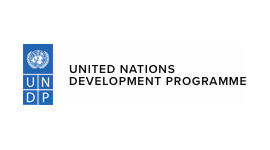Support to Economic Development at the Local Level in the Republic of Belarus

The project aims to support different forms of economic initiative, competitiveness and innovation at the local level, in order to promote inclusive development and expand employment opportunities. Within the framework of the project, the EU, UNDP, Ministry of Economy and partners in Belarusian regions will continue cooperation started within the framework of the Local Development project in order to create jobs and provide direct access to finance for SMEs and social enterprises at local level.
Objectives
- Development of long-term strategies at the local level dealing with formulation of approaches and concrete activities aimed at increasing employment, in particular through participatory analysis of opportunities and bottlenecks for economic development in the project districts, as well as identification of existing issues and development of potential solutions and definition of roles of all stakeholders;
- Building “eco-systems” to support economic activities, including measures to improve legislative framework and build stakeholders’ capacity with a focus on support to development of SMEs and Social Enterprises;
- Providing access to new financial mechanisms at the local level to enable the development of SMEs and Social Enterprises.
Beneficiaries
The primary focus is on local micro- small- and medium enterprises (MSMEs) as well as social enterprises as drivers of inclusive and sustainable growth and jobs in 12 pilot districts: Braslav and Orsha (Vitebsk region), Khotimsk and Bykhov (Mogilev region), Zhlobin, Khoiniki and Bragin (Gomel region), Bereza and Kobrin (Brest region), Lida (Grodno region), Molodechno and Borisov (Minsk region).
Activities
- Development of District Plans for SME Development (DPD SMEs) in a participatory way.
- Improvement of capacities, policy and regulatory framework in order to facilitate effective implementation of District Plans for SME Development.
- Improvement of access to finance for MSME initiatives and social enterprises, through the establishment of innovative funding facilities to support the implementation of District Plans for SME Development.
Results
Expected results by the end of the project include:
- Mechanisms are in place in at least 12 districts of the country which can unleash private initiative in order to provide solutions for socio-economic development including inclusive job creation at the local level with a focus on youth and vulnerable population, in particular, through the following:
- At least 12 District Plans for the Development of SMEs (DPD SMEs) are developed and adopted in a participatory manner;
- 3 analytical papers to support evidence-based development of DPD SMEs are developed;
- Participatory mechanism of joint decision-making is reinforced in at least 12 districts.
- Capacities of the sub-national administration staff and organisations providing services in promoting integrated local development are enhanced, in particular, through the following:
- At least 1,000 men and women benefited from introduced capacity building measures;
- At least 500 men and women benefitted from targeted trainings;
- Comprehensive proposals for improving legal, institutional and policy frameworks are developed;
- Capacities of national and local level actors in design and realisation of DPD SMEs are strengthened;
- At least 150 new local development initiatives meeting the requirements of DPD SMEs are supported by capacity strengthening activities.
- New jobs and income generation opportunities are created through the improved market positioning, and incentivising the productivity of SMEs and Social Enterprises, in particular, through the following:
- Micro-finance facility to finance SMEs and Social Enterprises is established and strengthened;
- Model of Fund for Support to Entrepreneurial Socially Important Initiatives is developed and tested based on prior developed and tested measurement system of socially useful business activities effectiveness;
- At least 4 PR/AR campaigns covering key project objectives and aimed at raising awareness and public dialogue are conducted;
- At least 200 Social Enterprises, SMEs, NGOs and other local initiatives are supported financially, in form of microfinance loans and other forms of direct access to finance;
- At least 12 business incubators are supported.

